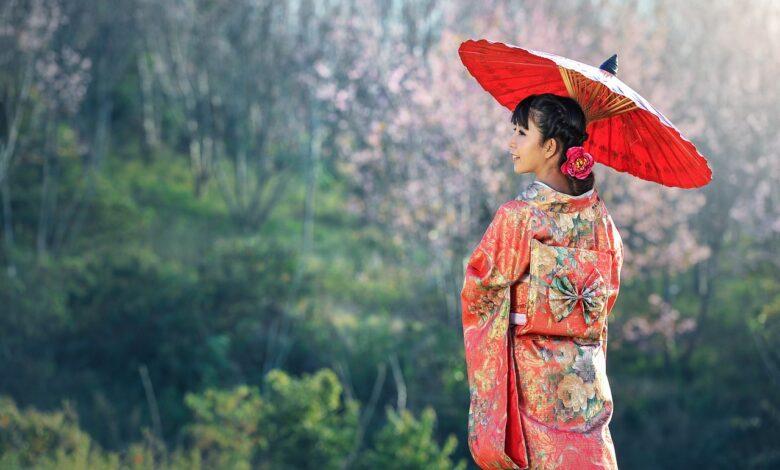Japan Dream Meaning & Biblical Interpretations

Dreams are fascinating windows into our subconscious, often reflecting deep-seated emotions and desires. When these dreams whisk us away to distant lands, like Japan, they can carry profound meanings. The Japan dream meaning often intertwines with personal aspirations or curiosity about the country’s rich culture and history. For some, these dreams might symbolize a longing for adventure or a deep appreciation for the harmony and discipline that Japan represents. In a broader sense, the biblical meaning of Japan in a dream could be interpreted as a journey towards discovering unknown aspects of oneself or a spiritual quest for wisdom. This exploration of Japan in dreams invites us to look beyond the surface, uncovering layers of meaning that resonate with our life’s journey and spiritual path.
Japan Dream Meaning and Interpretations
When our minds drift to the Land of the Rising Sun in slumber, the interpretations can be as diverse and intricate as the country itself. The meanings behind these nocturnal journeys often reflect various aspects of Japan and our personal connections to them:
- Cultural Fascination:
- Personal Desires and Aspirations:
- Yearning for exploration, travel, or new experiences.
- Ambitions mirroring Japan’s technological advancements or artistic endeavors.
- Emotional and Psychological Reflections:
- Seeking harmony and balance, inspired by Japanese aesthetics.
- Facing challenges with discipline and respect, akin to the samurai ethos.
- Interpersonal Connections:
- Relationships or bonds with people who have a significant connection to Japan.
- Memories or nostalgia related to personal experiences in Japan.
This mosaic of interpretations, each unique to the dreamer, encourages a deeper understanding of our desires, fears, and values. It’s not just about the visual spectacle of neon-lit streets or serene temples; it’s about what these symbols represent in our journey through life. These dreams act as a bridge, connecting the dreamer’s internal world with the external allure of Japan, offering insights that are both personal and universal.
What are Japan’s Common Dreams?
Delving into the realm of dreams that feature the essence of Japan, we encounter a variety of common themes. Each of these dreams not only connects us to the rich tapestry of Japanese culture and landscape but also offers a profound understanding of our inner selves. Here are nine frequent dream scenarios and their potential interpretations:
- Dreaming of Mount Fuji:
- Mount Fuji, a symbol of strength and tranquility, often represents personal growth and ambition.
- It may also signify overcoming challenges, given its majestic and imposing presence.
- Strolling in a Zen Garden:
- Such dreams can indicate a desire for inner peace and balance.
- They might also reflect a need for meditation and reflection in one’s life.
- Participating in a Tea Ceremony:
- This dream often suggests a longing for tradition, mindfulness, and the simpler pleasures of life.
- It could also symbolize a need for harmony in relationships and social interactions.
- Exploring Tokyo’s Bustling Streets:
- This can represent the excitement of new experiences and the chaos of life.
- It might also symbolize feelings of being overwhelmed or lost in the complexity of life’s journey.
- Encountering a Samurai:
- A samurai in dreams might signify personal honor, discipline, and strength.
- It could also reflect a battle within oneself or a struggle with moral dilemmas.
- Witnessing Cherry Blossoms (Sakura):
- Cherry blossoms are often associated with the transient nature of life and beauty.
- They could also symbolize renewal, hope, and the fleeting moments of happiness.
- Being in a Japanese Festival:
- Such a dream might indicate a desire for celebration, community, and cultural immersion.
- It could also represent the joy of life’s fleeting moments and the importance of making the most of them.
- Riding the Shinkansen (Bullet Train):
- Dreams of high-speed trains often symbolize rapid progress or a journey in life.
- They could also represent a desire to escape from current circumstances at high speed.
- Visiting a Shinto Shrine:
- This might indicate a search for spiritual guidance or purification.
- It could also reflect respect for traditions and a connection to the natural world.
Each of these dreams, ingrained with the ethos of Japan, serves as a mirror to our psyche. They are not mere figments of imagination but are deeply entrenched in the symbolism and ethos of Japanese culture. These visions offer insights into our personal growth, fears, desires, and the balance we seek in our lives.
From the majestic peaks of Fuji to the fleeting beauty of sakura, each element in these dreams carries a significant meaning. The bustling streets of Tokyo, the disciplined poise of a samurai, or the serene ambiance of a Zen garden – all these aspects converge in our dream world, painting a picture that is uniquely personal yet universally understandable.
Biblical Meaning of Japan in Dreams
The interpretation of dreams has always held a significant place in biblical texts, often seen as messages from the divine or reflections of one’s spiritual journey. While the Bible does not explicitly mention Japan, applying a biblical lens to dreams about this country can yield profound insights.
- A Symbol of Journey and Discovery:
- In the Bible, journeys often symbolize spiritual growth or a quest for enlightenment.
- Dreaming of Japan might represent embarking on a spiritual journey, seeking deeper understanding and wisdom.
- Embracing Change and Transformation:
- Biblically, changing landscapes in dreams can signify personal transformation or the need to adapt to new circumstances.
- Japan, with its mix of ancient traditions and modern innovations, could symbolize this harmonious balance between the old and the new in one’s life.
- Pursuit of Peace and Harmony:
- Dreams of peaceful Japanese settings, like tranquil gardens or serene temples, might reflect a longing for spiritual peace and harmony.
- This aligns with biblical themes of seeking tranquility and contentment in one’s faith and life.
- The Struggle Between Good and Evil:
- Encountering samurai or historical battles in dreams could symbolize the ongoing spiritual battle between good and evil, a prevalent theme in many religious texts.
- It could also represent the dreamer’s personal struggles with moral choices and ethical dilemmas.
- Messages of Hope and Renewal:
- The recurring theme of cherry blossoms, symbolizing life’s transient beauty and renewal, can be likened to biblical messages of hope, rebirth, and the fleeting nature of earthly life.
- Such dreams might encourage the dreamer to cherish each moment and remain hopeful, despite life’s impermanence.
- The Importance of Community and Fellowship:
- Dreams of participating in Japanese festivals or community events can resonate with the biblical emphasis on fellowship and being part of a community.
- These dreams might highlight the importance of support, unity, and celebrating life together.
- Seeking Wisdom and Guidance:
- Visiting ancient temples or engaging with wise figures in Japanese settings could symbolize the quest for divine wisdom and guidance.
- This reflects the biblical pursuit of understanding and the seeking of counsel from a higher power.
- Encounters with Nature:
- A Call to Mission or Purpose:
- Just as biblical characters often received divine calls in dreams, dreaming of Japan might signify a calling or purpose that the dreamer needs to discover or pursue.
Interpreting these dreams through a biblical perspective offers a unique lens, one that intertwines spiritual symbolism with the cultural richness of Japan. These dreams can be viewed as narratives that not only reflect our internal spiritual state but also challenge and inspire us to grow, transform, and seek deeper meanings in our faith journey. They encourage introspection, guiding us to contemplate our place in the grander scheme of life and our relationship with the divine.
Conclusion
As we reflect on the myriad interpretations of dreaming about Japan, it becomes clear that these visions are more than just nighttime narratives. The Japan dream meaning often serves as a mirror, reflecting our innermost thoughts and feelings towards aspects of life represented by Japan’s imagery. From a spiritual standpoint, the biblical meaning of Japan in a dream might suggest a deeper quest for understanding and enlightenment, transcending beyond mere fascination with a culture. Ultimately, these dreams open a dialogue with our subconscious, offering insights and perspectives that enrich our understanding of ourselves and our place in the world.



